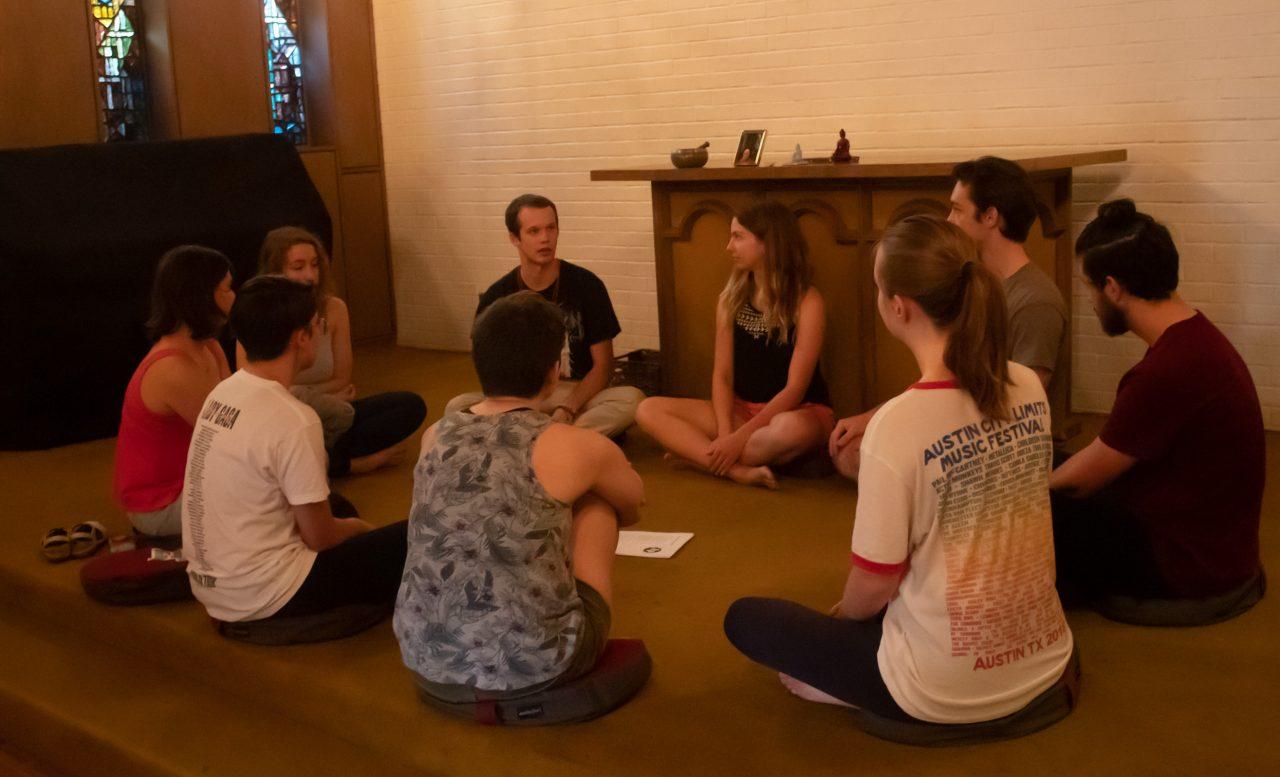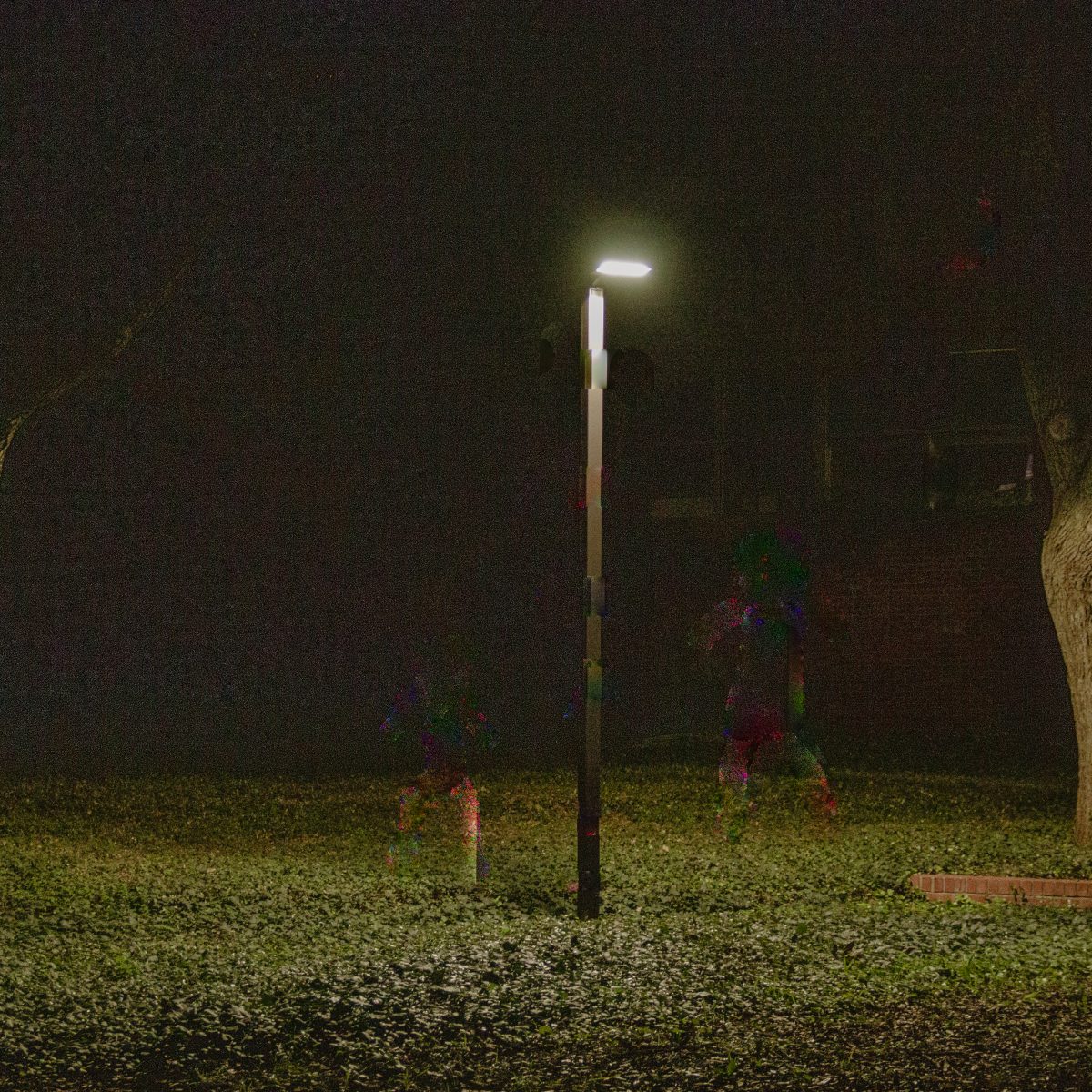Photo by Matthew Claybrook
Breathe in. Breathe out. Once more for good measure.
No, this isn’t a “manual breathing” joke to throw you off. Directing one’s awareness to the breath is a simple technique used for millennia to improve concentration, train the mind and dispel ignorance, greed and hatred. This kind of awareness practice is commonly known as “mindfulness meditation,” and it’s been somewhat of a health obsession in recent years. Meditation is touted by Google engineers, op-ed writers, yogis, therapists and anyone else prescribing quick, viral fixes for Westerners suffering from the anxieties of modern life. The new academic field of “contemplative studies” has also emerged, giving rise to thousands of studies on the scientific value and promising medical results of meditation.
Long before meditation, like so much of Asia’s cultural heritage, was “rediscovered” by Western orientalists, the first major innovator of India’s mind training traditions was the Buddha Gautama, who lived 2500 years ago. After leaving his home and practicing severe asceticism for six years, he finally came to meditate underneath the Bodhi tree near modern-day Gaya, Bihar. Instead of shunning the world and ridding himself of all thoughts and emotions, he concentrated deeply on his breath, observed reality with bare awareness and had a profound realization of the impermanence of all phenomena. From here, he purified his mind of all attachment and hatred and became free from the world’s suffering. Simple meditation and a deep shift of perspective brought the Buddha to enlightenment. Soon, he began to teach others. The first Buddhist practices were a combination of moral vows, meditation to build concentration, and awareness of the present moment. This practice was revolutionary because it was open to anyone irrespective of caste, race, gender, religion or ability. The Buddha died after teaching for 45 years, and his wisdom was passed down through lineages that have now made it into American culture.
So why is meditation now a major trend in the discourse of health and wellness? Despite entering a new cultural context, meditation still works as a tool to dispel dissatisfaction and harmful emotions. Our world is more connected than ever through technology and consumption. If advertising, the internet and societal pressure are always pulling at our attention, it’s natural that you and I may feel compelled to seek some balance and composure. As young adults inheriting a difficult human legacy, dealing with life should involve the pursuit of lasting happiness that doesn’t need to be purchased annually. This is the value of wisdom and spirituality that can inspire us to improve our holistic wellbeing. Meditation is one technique to improve the culture of your mind and the world around you by extension — it just happens to have worked for thousands of years. In my life as a student, I’ve been able to incorporate this practice, which has not only helped me deal with stress but set me on a progressive path towards realizing my own inherent wisdom and expressing natural compassion.
The Buddha designed these meditation techniques to be accessible to everyone, and there are many resources available for anyone who is interested in learning or trying to meditate. YouTube is filled with thousands of guided meditations from all kinds of traditions and teachers. One of my favorite tools is a free app called Insight Timer, for ambient noise, guided meditations and keeping track of time. Meditating for just five minutes a day can positively affect your behavior. The beginning and the end of the day are some of the best times to practice because doing so starts the morning with awareness concludes with processing and reflecting on your personal well-being.
Mindfully counting breaths from one to five is an excellent way to calm down — the element of awareness begins with plainly observing whatever’s going on around you or in the mind and letting go of whatever you notice. If you’re new to meditating, attending a meditation group can help by introducing you to new friends who have a mutual interest in contemplative practice. At Trinity, TU Fit: The Health Club offers weekly meditation events. The Natural State Dharma Group meets every Monday at 6 p.m. in Parker Chapel 228 (meditation hall). Additionally, a drop-in meditation group will begin next Thursday, with a different volunteer leader for each weekly session.
Take one more deep breath in and out. You’ve been breathing this whole time. True peace can be found in the space of a single breath.
“Meditation is offering your genuine presence to yourself in every moment. It’s the capacity to recognize clearly that every moment is a gift of life, a gift from the Earth and sky.” – Thích Nhất Hạnh, Peace Is Every Breath: A Practice for Our Busy Lives.






